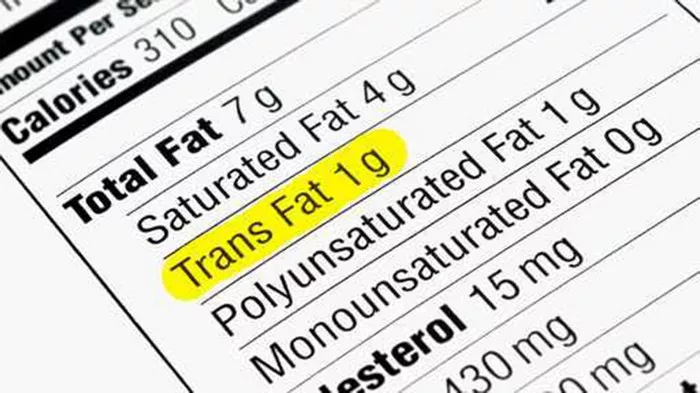Maintaining healthy cholesterol levels is crucial for overall well-being and reducing the risk of cardiovascular diseases. While genetics play a role, dietary choices also significantly impact cholesterol levels. Certain foods can raise “bad” LDL cholesterol levels and lower “good” HDL cholesterol, contributing to heart health risks. In this article, we will delve into the five worst foods for cholesterol, providing a comprehensive guide to help individuals make informed dietary decisions.
Trans Fats: The Silent Culprit
Trans fats, also known as trans-unsaturated fatty acids, are artificially produced fats that have gained notoriety for their adverse effects on cholesterol levels. These fats are commonly found in processed foods, such as fried foods, pastries, margarine, and commercially baked goods. The consumption of trans fats has been strongly linked to increased LDL cholesterol levels and decreased HDL cholesterol levels, making them a significant contributor to heart disease risk.
Numerous studies have demonstrated the harmful effects of trans fats on cholesterol profiles. For instance, a meta-analysis published in the Journal of Lipid Research concluded that trans fat consumption leads to a substantial increase in LDL cholesterol and a decrease in HDL cholesterol, ultimately elevating the risk of coronary artery disease.
To reduce trans fat intake and improve cholesterol levels, individuals should opt for healthier fats, such as monounsaturated and polyunsaturated fats found in olive oil, avocados, nuts, and seeds. Reading food labels and avoiding products with hydrogenated oils can also help minimize trans fat consumption.
Saturated Fats: The Culprit Within
Saturated fats are naturally occurring fats found in animal products and some plant-based foods. While they are not as detrimental as trans fats, excessive intake of saturated fats can still raise LDL cholesterol levels and increase the risk of heart disease. Foods high in saturated fats include fatty cuts of meat, full-fat dairy products, coconut oil, and palm oil.
The American Heart Association recommends limiting saturated fat intake to less than 7% of total daily calories to maintain healthy cholesterol levels. For someone consuming 2000 calories per day, this equates to about 16 grams of saturated fat or less per day.
Replacing sources of saturated fats with healthier options can help manage cholesterol levels. Choosing lean meats, low-fat dairy products, and cooking with unsaturated oils like olive oil or canola oil can make a significant difference in promoting heart health.
Processed and Red Meats: Double Trouble
Processed meats, such as bacon, sausage, hot dogs, and deli meats, are not only high in saturated fats but also contain harmful additives like sodium and nitrates. These additives can further contribute to cardiovascular risks. Red meats, including beef, pork, and lamb, are also high in saturated fats, making them a double threat to cholesterol levels.
Multiple studies have linked the consumption of processed and red meats to adverse changes in cholesterol profiles. A systematic review and meta-analysis published in Circulation found that higher intake of processed meats was associated with elevated LDL cholesterol levels, emphasizing the need to limit consumption of these products for heart health.
To reduce the negative impact of processed and red meats on cholesterol, individuals can opt for lean cuts of meat, trim visible fat before cooking, and incorporate more plant-based protein sources like beans, lentils, and tofu into their diets. Additionally, choosing nitrate-free and low-sodium options when consuming processed meats can help mitigate risks.
Sugar and Refined Carbohydrates: Sweet but Harmful
While sugar and refined carbohydrates are not directly responsible for raising cholesterol levels, their consumption can indirectly influence cholesterol profiles by promoting weight gain, insulin resistance, and inflammation, all of which contribute to adverse cardiovascular outcomes. Foods high in added sugars and refined carbs include sugary beverages, candy, pastries, white bread, and pasta made from refined flour.
Excessive intake of these foods can lead to weight gain, particularly around the abdomen, which is associated with higher LDL cholesterol and lower HDL cholesterol levels. Moreover, a diet high in sugar and refined carbohydrates can increase triglyceride levels, another risk factor for heart disease.
To manage cholesterol levels effectively, individuals should limit their intake of added sugars and opt for whole grains, fruits, vegetables, and sources of complex carbohydrates. Consuming fiber-rich foods can also help improve cholesterol profiles by reducing LDL cholesterol absorption in the gut.
Highly Processed Foods: The Hidden Threat
Highly processed foods, characterized by their excessive additives, preservatives, refined ingredients, and high sodium content, pose a hidden threat to cholesterol levels and overall heart health. These foods often lack essential nutrients and are loaded with unhealthy fats, sugars, and artificial substances that can disrupt metabolic processes and contribute to elevated cholesterol levels.
A study published in the American Journal of Clinical Nutrition found that a diet high in ultra-processed foods was associated with higher LDL cholesterol levels and increased cardiovascular risk factors compared to a diet based on minimally processed foods.
To protect against the detrimental effects of highly processed foods on cholesterol, individuals should prioritize whole, nutrient-dense foods and minimize the consumption of packaged snacks, sugary cereals, fast food items, and convenience meals. Reading ingredient labels and choosing products with fewer additives and lower sodium content can help improve overall dietary quality and promote heart health.
Conclusion
Maintaining healthy cholesterol levels is paramount for reducing the risk of cardiovascular diseases and promoting overall well-being. By being mindful of dietary choices and avoiding the five worst foods for cholesterol—trans fats, saturated fats, processed and red meats, sugar and refined carbohydrates, and highly processed foods—individuals can take proactive steps towards optimizing their cholesterol profiles and improving heart health. Incorporating nutrient-rich foods, lean proteins, healthy fats, and fiber into daily meals can contribute to a heart-healthy lifestyle that supports long-term wellness.


